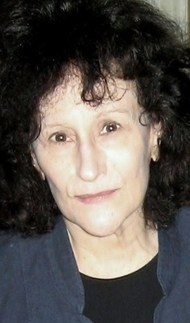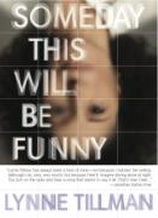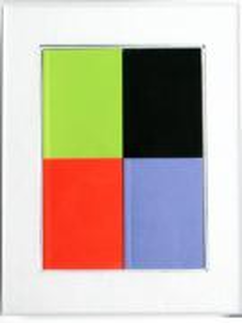 Lynne Tillman Lynne TillmanPhoto by Julia Jackson Lynne Tillman's latest book is Someday This Will Be Funny, a collection of short stories, published by Red Lemonade Press (2012). Her most recent novel is American Genius, A Comedy, published by Soft Skull. She is the fiction editor at Fence Magazine and Professor/Writer-in-Residence in the Department of English at the University at Albany. RUSTY TALK WITH LYNNE TILLMAN Kathryn Mockler: What is your first memory of writing creatively? Lynne Tillman: When I was eight, I wrote a composition about Charlemagne. My class was asked to write just one. But I got carried away, and wrote two. That thrill, rush, gave me a sense of power, freedom, pleasure—an eight year old's version. KM: Why did you become a writer? LT: I don't know why. I could give you reasons, but I really don't know other than to say that, when I was eight and wrote those little compositions, I loved it. I felt I was good at it, and decided right then to be a writer. KM: Could you describe your writing process? LT: I'm erratic. I don't have an everyday practice, except when I want to do it, want to write it, whatever it is. Then I become compulsive, and sit at my desk, at the computer, for hours without moving. Except for getting a cup of tea. But I can forget to eat, and begin to feel heady, dizzy. This is not great for the body, but I love that intensity, concentration, being inside what I'm writing. KM: Rejection or criticism can often stop new writers before they start. Do you have any advice on how to deal with rejection? LT: Rejection is different from criticism. Constructive criticism can help, but sometimes it's hard to handle, especially when you're just beginning to show your work. Rejection can be hell. Writers have to know that. But it's always miserable. I have no advice other than to say we all go through it, and if you can't get through it, you can't show your writing to others for publication. KM: What writers would you recommended to an aspiring writer? Or what writers were influential to you when you first started out? LT: Most important is how you read as a writer, not what you read. Reading crap is just boring. There are many good writers, fewer great ones; but if a writer reads critically, she can learn how it's done, and what she likes or doesn't and why. It aids in making choices if you know there are choices. KM: What is the best literary advice you've gotten that you actually use? LT: "Take your reader by the hand." My older sister told me that when I was 12. KM: Your favourite literary moment, if you have one. LT: Maybe my favourite moment was when the great writer Harry Mathews read aloud a piece I had written anonymously, because I was so insecure, to an audience at St. Mark's Poetry Project. I was astonished, surprised, happy, embarrassed; but it got some laughs, and gave me some courage. KM: What are you working on now? LT: A novel, my sixth, if I ever finish it. Right now I'm calling it Clouds and Apparitions, but Clouds may go. Not sure yet. LYNNE TILLMAN'S MOST RECENT BOOK Someday This Will Be Funny, Red Lemonade, 2011  LYNNE TILLMAN AS AUTHOR PHOTO The black-and-white pencil drawing on the reverse of Someday This Will Be Funny shows a woman with a long, oval face, a thin nose, a strong chin, and a cloud of apparently blonde, curly hair. The black-and-white photograph on the flyleaf of the story collection Absence Makes the Heart shows the same woman, twenty-one years ago—the same thin lips, the same elegantly elongated nose. The woman looks like Glenn Close. She looks so much like Glenn Close, especially Fatal Attraction, Alex Forrest–era Glenn Close, that I spend at least fifteen minutes comparing results in Google image search. In color everything is clearer. The woman is Lynne Tillman. It’s funny that for a second I saw Alex Forrest—powerfully, primally, dangerously sexual, a female menace—one of those synaptic errors that later make a sort of sense, a tired brain conflating a time period, a radically direct portrayal of female sexuality, an aureole of hair. Or an error that later will simply be funny. Someday this will be funny. From The Literary Review, "Ruth Curry A Collection of Thoughts on Lynne Tillman, on the Occasion of the Publication of Her Twelfth Book, Someday This Will Be Funny" Lynne Tillman's characters inhabit language the way others live in rooms and cities. It's not that they are made only of words—all literary characters are—or that they don't have their own versions of material longings, needs, attachments, and obstructions. What's different is that they are attuned to language. They fraternize with words even when they are not talking. They treasure clichés and ready-made phrases as if they were messages or hints, turning them over to find their wisdom, or at least the joke wrapped inside them. In her collection This Is Not It (2002), when a woman makes a "last-minute decision," she very soon wonders what a "first-minute decision" would look like. There is an echo of this thought in Tillman's new story collection, Someday This Will Be Funny: "The decisive moment was an indecisive one for her." We instantly start adding up our own moments of that sort, finding far too many. From Bookforum, "Words to Live By: Comic stories interrogate reality, history, and language itself" by Michael Wood Despite the claim of the title, “Someday This Will Be Funny,” you wouldn’t want to reach for Lynne Tillman’s new book just for a good howl. In fact, that “someday” the title promises may never come. Tillman’s stories are too piercing, the obsessions of her characters too connected to their psychic wounds, for them to be considered exactly “funny.” In any case, it isn’t “someday” but rather “meantime” that counts for readers. And in the meantime, Tillman’s fictions tend to be (to steal a line from one of her stories) as “outrageously ineffable, obdurate and evasive” as the forms of desire they describe. Gorgeously at ease and technically virtuosic, the stories are ever on point — on point, that is, if the point of your reading has more to do with psychological nuance and bravura performances of language than with conventional story lines. From The New York Times Sunday Book Review, "Lynne Tillman’s Innovative Stories" by Forrest Gander |
Rusty Talk
Rusty Talk Editor: Archives
November 2017
Categories
All
|


 RSS Feed
RSS Feed
